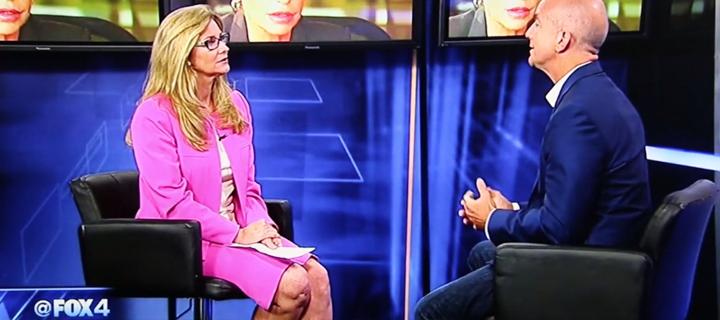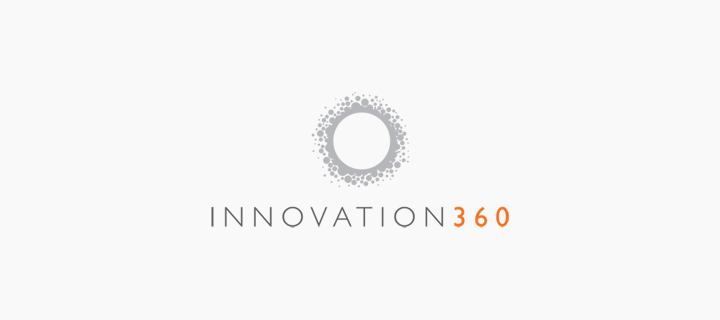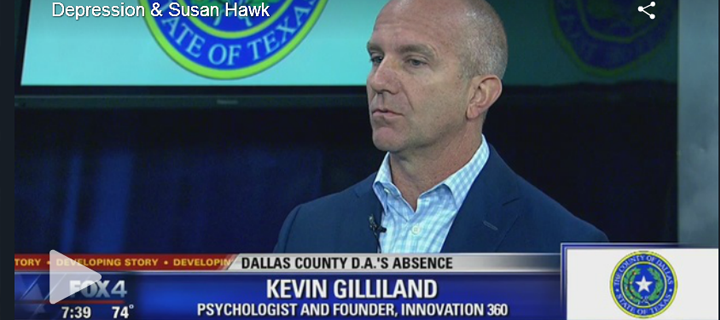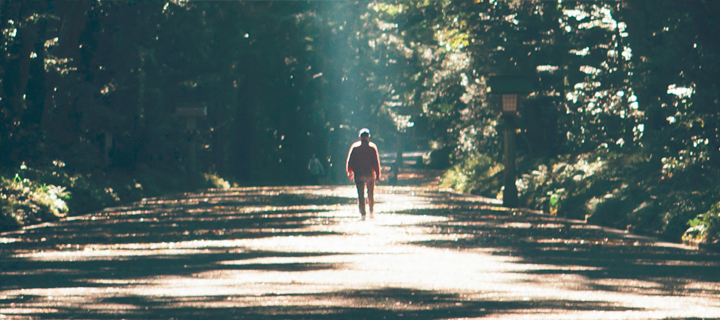Dr. Gilliland Discusses Depression Treatment on FOX4 News
Dr. Gilliland was recently featured on FOX 4 News in Dallas to discuss depression treatment. You can watch the video here.
Read Kevin Gilliland’s Dallas Morning News OpEd
Dr. Kevin Gilliland’s recent OpEd: “Facing the Cunning, Baffling, Power Nature of Substances and Addiction” was published in the Dallas Morning News on May 27th. Read the full article here to understand how prescription drugs are holding our society captive.
Depression and Susan Hawk, Good Day Talks to Kevin Gilliland
In case you missed it, Dr. Gilliland was featured on this morning’s Good Day (Fox 4 News) to discuss mental illness and depression. Click here to watch the interview on Fox 4 News!
Mythbusting: Why people resist alcohol treatment
In a prior post, we shared some questions to help assess whether you or a loved one might have an alcohol addiction. But once denial is out of the picture and someone realizes that they have a problem with alcohol, many people still resist getting help. In fact, although an estimated 25 million Americans struggle with addiction, less than 10% of them will seek treatment.
Here are some of the most common objections we hear when people come close—but don’t actually commit—to getting help for an alcohol issue. Spoiler alert: none of them are valid reasons to delay getting on the road to recovery.
“I can do it on my own.”
Self-efficacy—your belief in your capacity to succeed at accomplishing something—is a great thing when it comes to achieving goals. In fact, it is probably why you have been successful in work, sports, and challenges in life. However, it can also be a serious stumbling block for someone struggling under the power of an addiction. The notion of self-efficacy is especially strong for high achievers battling alcoholism—they’re accustomed to feeling capable and in control. We often believe we can ‘out think’ or ‘out run’ an addiction without any outside help. The reality: except in rare cases, going it alone to treat an addiction usually doesn’t work.
“I can’t stop working/taking care of my family to get help.”
Getting treatment for addiction doesn’t always mean that you’re going away and checking into a residential facility. ‘Rehab’ isn’t the only—or the best—approach for everyone with an alcohol issue. Your daily routine doesn’t necessarily have to come to a halt. Effective alcoholism treatment can take many forms, such as at-home support or a hybrid approach combining counseling and lifestyle changes. This is what our ‘Treatment in the Midst of Life’ philosophy is all about—being alongside you to make positive changes within your unique environment.
“I can’t afford treatment.”
There is no one-size-fits-all approach to treatment, and with the right guidance from a reputable professional, everyone should be able to find a treatment approach that fits their budget. Plus, when you consider the financial alternative to letting a serious addiction spiral out of control, even ‘pricey’ treatment starts to look like a bargain. Think about it. Divorces and custody battles are expensive. DUI convictions are expensive. Doctor visits for alcohol related physical problems are expensive. Actually, I’m not sure you can afford to keep drinking the way you do.
“I’m not a ‘group therapy’ type of person.”
While support groups like Alcoholics Anonymous are excellent recovery outlets for many people, they’re not a ‘must’ for everyone in recovery. One-on-one counseling is sometimes the best fit. And once they are detoxed and have a clear head, even folks who previously swore they’d never be caught dead in an AA meeting develop a new appreciation for the support of a community.
“I’m ashamed/embarrassed.”
It can be frustrating to be unsuccessful in trying to quit something or to try to make a healthy change in life. You feel two ways about it: you enjoy certain elements and you really dislike others. It’s frustrating to feel that way and can lead to feelings of sadness and shame when we act in ways we don’t want to. That is often the power of an addiction. And there’s no denying that a degree of stigma exists around addiction. But fortunately, as more and more of our friends, neighbors and loved ones are joining celebrities to publicly share their stories of recovery, our society is starting to chip away at the unnecessary shame around addiction. Plus, the reality is that alcohol treatment can be as discreet as you want it to be.
“I’ll lose my job.”
You might. You might also lose your job if your alcohol use continues to escalate out of control. Legally speaking, your job shouldn’t be at risk (yes, key word: shouldn’t). There are two pieces of federal legislation, the Americans with Disabilities Act and the Family Medical Leave Act, that guarantee that addicts and alcoholics who undergo treatment for substance abuse will be given the time they need to do so by their employers, and that their jobs will be secure when they return. And again, some problems with alcohol don’t require “going away”. There are other options.
Not convinced? We believe that addiction treatment works. And the unique way we do it may just surprise you and shatter a few more myths you might have about recovery. We encourage you to reach out to us to learn more.
Seriously, this is no joke.
So, this probably comes as no surprise that I’m a bit of jokester. I love pulling an all-in-good-fun prank on an unsuspecting friend or colleague. Just a few weeks ago, for example, our team pulled a great prank on Chris Epstein, our Clinical Director. What made it so funny for all of us involved, was that he had NO idea he was being played. (When you get a chance, ask him about it!)
So naturally, I love April Fool’s Day. (Although making a national holiday out of pranking kind of ruins the element of surprise for guys like me.) Really, what’s the fun if someone knows it’s coming?
And while April Fool’s Day gets a lot of love in April, there’s something far less funny that’s also being recognized this month. April is National Alcohol Awareness Month.
Yes, yes. I know EVERYTHING gets its own month or a day to celebrate. Ferrets (April 2), chicken cordon bleu (April 4) and barber shop quartets (April 11) are also celebrated this month. It’s like we’re all in search of our happy rainbows. Oh wait, April 3 is National Find a Rainbow Day. So there you are.
But, let’s take this opportunity to recognize that alcoholism really is no joke; and this is a great opportunity to talk about it. Because, despite its prevalence in our society, alcoholism is still largely misunderstood.
In fact, one of the most common questions I hear is, am I an alcoholic? Well, if you have to ask, yah there’s probably a reason you’re asking. But, man, that’s a loaded question too. Because there really is a difference between my drinking is ruining my life, my drinking causes me problems in my life, and I don’t like the way I think about drinking.
So we’re going to take this month to walk through some key points about alcoholism with you.
And to get us started, here are a few general “self awareness” or “reflective” questions I think would be a good lift off point:
– What’s your drinking pattern? On any day in the past year have you had more than 4 standard drinks (men) / 3 standard drinks (women)
– On average, how many days a week do you drink alcohol?
– On a typical drinking day, how many drinks do you have?
– Does alcohol cause you to neglect your personal or professional responsibilities?
– Do you have alcohol related legal problems? (domestic violence, DUI, public intoxication)-
– Do you fight with your friends or relatives when you drink?
Again, these are just a few questions to ask to get you started on the journey of thinking about the role that alcohol plays in your life. If you do have concerns, please reach out to a professional who can help you walk through your struggles. Or, if you know somebody who you feel is struggling with alcohol, you may also be their lifeline.
If you’re not sure where to start, please call us and we’ll begin the journey together. And stayed tuned to this month’s emails. We’ll pack them full of helpful insights.
A Season of Second Chances
Have you ever heard someone say I EARNED a second chance? Or I MADE a second chance? What about I CREATED a second chance? No, not really. Generally, we say we GOT a second chance. So why is it that we feel we GET second chances?
Because we do! We all GET second, third, fourth…countless “second” chances. Just take a look around you. Brown lawns are turning green. Bare trees are growing leaves. Flowers are blooming. The sun’s filling the days with more light. Spring rains are washing away the winter.
It’s like the earth is saying, “Hey guys, I know it’s been dark and cold for the last few months, but that was just a season. We’re turning this around now.”
Spring is a season of second chances. It’s a time to break cycles. Change behaviors. Start fresh. And even if you’re not religious, it’s a time of resurrection – rebirth, new life. Because it really doesn’t matter how many times we fall, it matters that we keep getting up.
Here are three things you can do now to take advantage of this season of second chances.
Forgive. Few things impede development like blame. Learn to forgive AND accept forgiveness. Withholding forgiveness usually does more harm than good. It often leads to bitterness, anger or resentment that ultimately takes a toll on our physical, emotional and mental health. Forgiving yourself – or accepting someone’s forgiveness – is also a critical part of shedding burdens that weigh us down.
Hope. Depression, anxiety and addiction can lead to feelings of helplessness. This can leave us feeling vulnerable and strip away our hope. So it’s critical to find and embrace hope. Hope comes in lots of forms. It may be in a conversation with a good friend, attending worship services, professional counseling or a morning run. Wherever you find hope, embrace it.
Serve. Nothing helps us look past ourselves like helping others. A religious man once said, “He who gives money gives some. He who gives time gives more. He who gives of himself gives all.” Serving others through volunteerism can be rejuvenating. Some studies have suggested that a part of our brain lights up when we help others. That part of our brain produces feel-good chemicals like dopamine that may lead to reduced stress, anxiety, possibly even mild depression. Find ways – everyday – to incorporate small acts of kindness or help bear someone else’s burden.
Take this time of year to start fresh and embrace your second chance. If you’re suffering from depression, anxiety or addiction, this is another opportunity to find hope, new life and a resurrection from your old self. If you have trouble finding that hope, please call us and let us walk that path with you.






